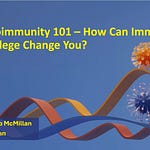When I first learned about Disease X, a mysterious outbreak in the Democratic Republic of Congo, I felt a sense of urgency unlike anything before. Characterized by fever, headaches, cough, and sometimes difficulty breathing, this airborne illness has already infected 376 people, claiming nearly 100 lives. Over half of the affected individuals are children under five—a heartbreaking reality.
At the heart of the outbreak lies the impoverished Panzi district, where malnutrition affects nearly 40% of the population. This region had already endured a typhoid outbreak, leaving its healthcare system even more vulnerable. As I’ve delved deeper into this story, it’s become clear that Disease X isn’t just a local crisis—it’s a global warning.
The Democratic Republic of Congo (DRC) expects to diagnose ‘Disease X’, which has killed at least 79 people in the Panzi district of Kwango Province by the weekend…
What We Know About Disease X
Initially, experts anticipated that the outbreak would be identified as a new, highly infectious virus. However, recent findings suggest a complex interplay of factors: endemic malaria, respiratory infections, and the exacerbating role of immune suppression.
The presence of monkeypox, which had already spread through the Congo following its global reemergence, further complicates the situation. Unlike the typical rodent-transmitted monkeypox endemic to the region, this outbreak originated from sexual transmission brought in from Europe. Combined with the lingering impacts of COVID-19, a perfect storm has developed—one that is overwhelming an already fragile health system.
The World Health Organization (WHO) is investigating an outbreak of a mysterious illness in the Democratic Republic of the Congo (DRC), with preliminary findings suggesting malaria and other known pathogens as possible causes.
The Global Connections
The Congo’s outbreak highlights a broader issue: the interconnectedness of global health. People traveling from highly vaccinated regions, where SARS-CoV-2, RSV, and mycoplasma circulate widely, have unintentionally introduced these pathogens into a population unprepared to handle them. This combination of viruses and bacteria, coupled with malnutrition and inadequate healthcare infrastructure, has created an environment ripe for disaster.
Moreover, we cannot ignore the role of immune suppression. SARS-CoV-2, for instance, is adept at evading interferon responses, weakening the body’s first line of defense against infections. In regions like the Congo, where health systems are already stretched thin, this suppression can turn manageable diseases into deadly epidemics.
Why This Matters to All of Us
Disease X isn’t just a Congolese problem—it’s a global one. In an interconnected world, the spread of infectious diseases knows no borders. The factors driving this outbreak—immune suppression, malnutrition, and the circulation of multiple pathogens—are not unique to the Congo. They are warning signs of what could happen elsewhere if we fail to act.
This is why I’ve written Disease X: Are You Prepared?, now available on Amazon. The book provides insights into how these interconnected crises develop and offers practical advice on how we can prepare for what’s coming next. Using the COVID-19 pandemic as a template, I delve into the patterns we’re seeing and how we can mitigate future risks.
Purchase on Amazon here >
How You Can Help
Educate Yourself and Others: Understanding the interconnected nature of global health is the first step toward making informed decisions. Resources like Disease X aim to empower individuals with knowledge.
Advocate for Transparency: Push for governments and health organizations to prioritize research and transparency in addressing outbreaks. Knowledge is our best defense.
A Call to Action
Disease X is more than an outbreak; it’s a wake-up call. If we’ve learned anything from COVID-19, it’s that preparation and awareness are key to preventing crises from spiraling out of control. Let’s not wait for the next pandemic to act.
Join me in spreading the message and raising awareness. By understanding the factors behind Disease X and supporting initiatives to combat it, we can make a difference—not just for the Congo, but for the world.
Please support my research efforts by subscribing to Vejon Health Substack. Your support allows me to continue bringing you my insights in a timely and effective way.












